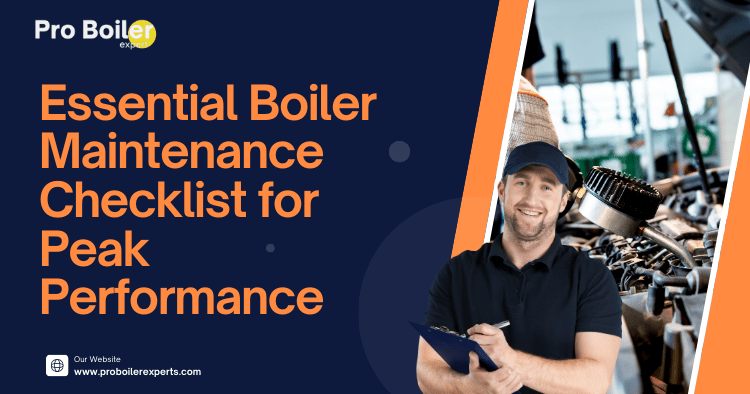Table of Contents
- Introduction
- Why Boiler Maintenance is Important
- Monthly Maintenance Tasks
- Seasonal Maintenance Tasks
- Annual Maintenance Tasks
- Signs Your Boiler Needs Attention
- FAQs
- Conclusion
Introduction
Welcome to your ultimate guide for boiler maintenance! Just like you wouldn’t skip regular check-ups with your doctor, your boiler requires consistent attention to ensure it runs smoothly and efficiently. A well-maintained boiler not only provides reliable heating but also ensures safety, saves energy, and extends the lifespan of the unit. Let’s dive into the essential tasks you need to perform to keep your boiler in peak condition.
Regular maintenance is an investment that pays off in comfort and safety.
Why Boiler Maintenance is Important
Boiler maintenance is crucial for several reasons:
- Safety: Faulty boilers can lead to dangerous situations, including carbon monoxide leaks. Regular maintenance helps prevent these risks.
- Efficiency: A well-maintained boiler operates more efficiently, which translates to lower energy bills. According to the U.S. Department of Energy, maintaining your heating system can improve its efficiency by up to 15%.
- Longevity: Regular check-ups can extend the lifespan of your boiler, reducing the need for costly replacements.
“An ounce of prevention is worth a pound of cure.” – Benjamin Franklin
For more information, check out the U.S. Department of Energy’s guide on energy efficiency.
Monthly Maintenance Tasks
- Check the Pressure Gauge: Ensure the pressure is within the recommended range (usually between 1 and 2 bar). If it’s too low, you might need to add water.
- Inspect the Radiators: Look for cold spots, signs of leaking, or corrosion. Bleed any radiators that aren’t heating properly.
- Listen for Unusual Noises: Pay attention to any banging, clanging, or whistling sounds, which could indicate issues like air trapped in the system or the need for a professional inspection.
| Task | Frequency | Notes |
|---|---|---|
| Check pressure gauge | Monthly | Aim for 1-2 bar |
| Inspect radiators | Monthly | Bleed if necessary |
| Listen for noises | Monthly | Report unusual sounds to a professional |
“A little attention goes a long way in preventing major problems.”
Seasonal Maintenance Tasks
Before Winter
- Flushing the System: A professional should flush the system to remove sludge and debris that can accumulate over time. This is particularly important for condensing boilers.
- Inspecting the Flue: Ensure the flue is clear of blockages to prevent carbon monoxide backdrafts.
- Thermostat Check: Test your thermostat to ensure it’s functioning correctly and accurately reflecting the room temperature.
Before Summer
- Turn Off the Boiler: If your boiler is not needed during summer, ensure it’s properly shut down and that the water is drained to prevent stagnation.
- Inspect for Leaks: Check for any leaks or signs of wear and tear that may have developed over the winter.
| Task | Frequency | Notes |
|---|---|---|
| Flushing the system | Before Winter | Hire a professional for best results |
| Inspecting the flue | Before Winter | Ensures safety and efficiency |
| Turn off the boiler | Before Summer | Prevents water stagnation and potential leaks |
“Preparation is the key to a worry-free winter.”
Annual Maintenance Tasks
- Professional Inspection: Schedule a thorough annual check-up with a qualified technician. They will perform a comprehensive assessment, check for leaks, and replace worn-out parts. Regular professional checks are especially vital for system and combi boilers.
- Safety Valve Check: Ensure the safety valve is operational to prevent overpressure situations.
- Clean the Boiler: A professional should clean the internal components to enhance efficiency.
“Annual inspections can save you from costly repairs down the line.”
Signs Your Boiler Needs Attention
- Increased Energy Bills: If your heating costs are climbing without an increase in usage, it may indicate inefficiency.
- Unusual Sounds: As mentioned earlier, strange noises can signal issues that need addressing.
- Leaking Water: Any visible signs of water leaks should be investigated immediately.
- Error Codes: If your boiler displays error codes, refer to the manufacturer’s manual or contact a professional.
“Don’t ignore the signs; they often lead to bigger problems.”
FAQs
Q: How often should I service my boiler?
A: It’s recommended to have your boiler serviced at least once a year. This keeps it running efficiently and safely.
Q: Can I perform maintenance myself?
A: While some basic checks can be performed by homeowners (like checking pressure), it’s best to have a professional conduct thorough inspections and servicing.
Q: What should I do if I smell gas?
A: If you smell gas, immediately turn off the gas supply, ventilate the area, and contact your gas supplier or emergency services.
Q: How do I know if my boiler is efficient?
A: An efficient boiler will have a high Energy Efficiency Rating (A-rated is best). Regular maintenance can help keep it running efficiently.
“When in doubt, always seek professional advice.”
Conclusion
Boiler maintenance doesn’t have to be daunting! By following this checklist and performing regular checks, you can ensure your boiler remains efficient, safe, and reliable. Regular maintenance is an investment in comfort and safety for your home.
For more detailed insights on various types of boilers, consider reading about the top 5 benefits of choosing combi boilers, or explore smart boiler options for energy efficiency. Happy heating!





